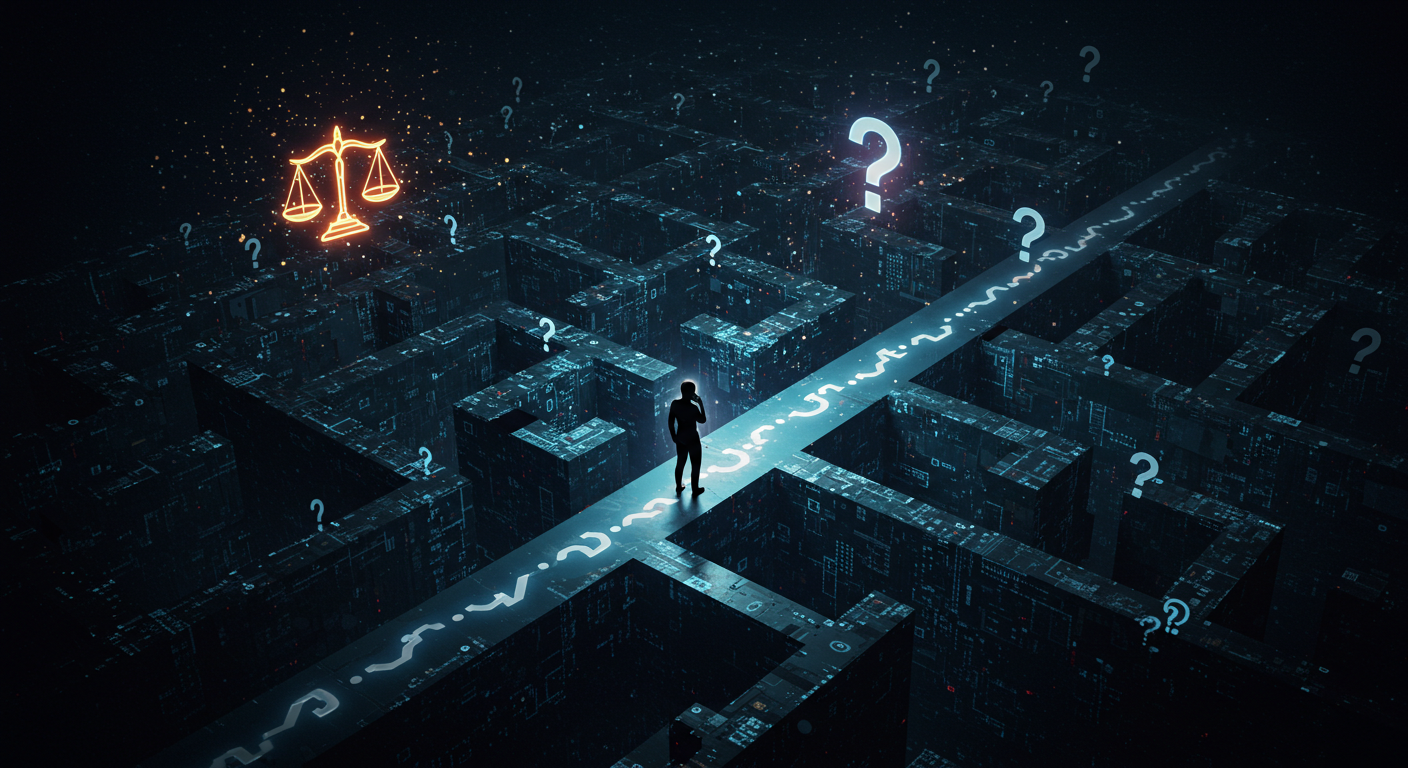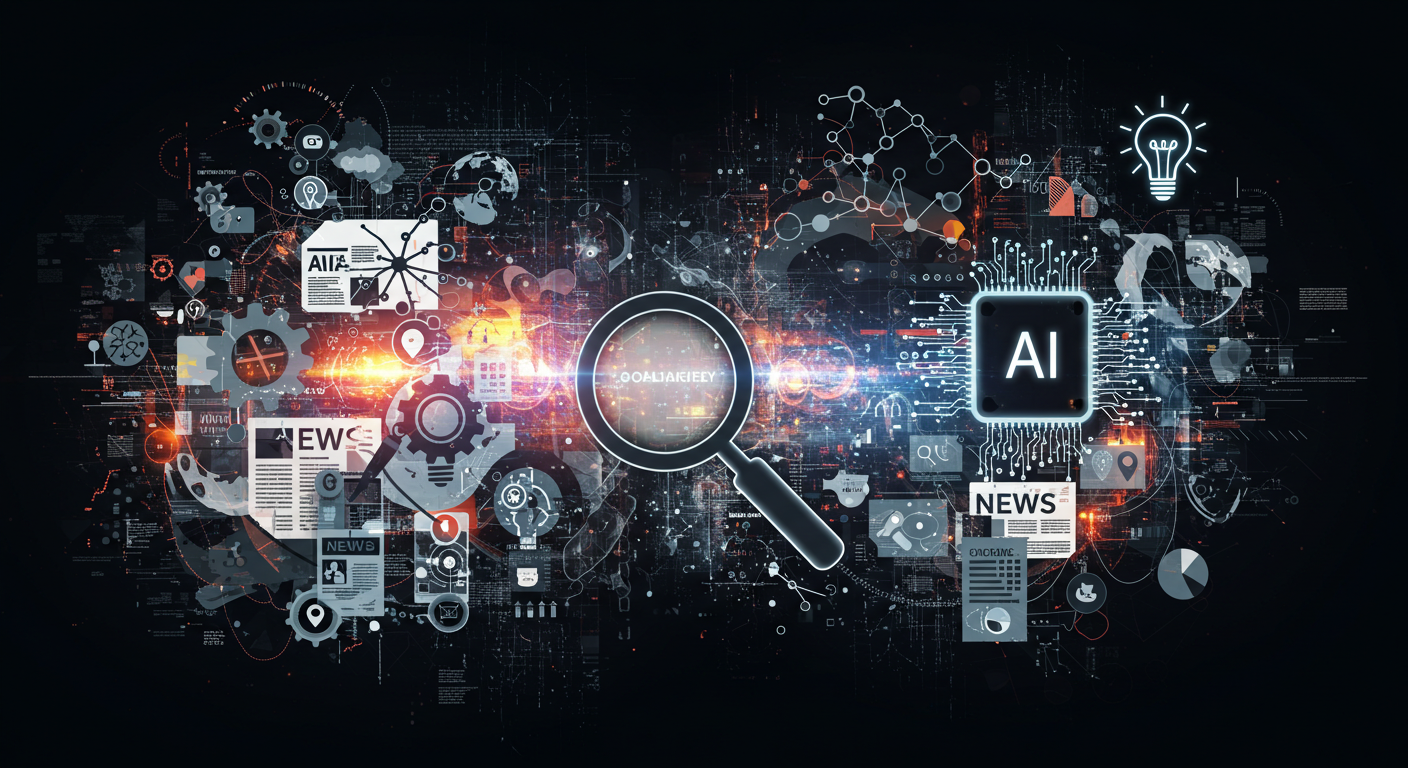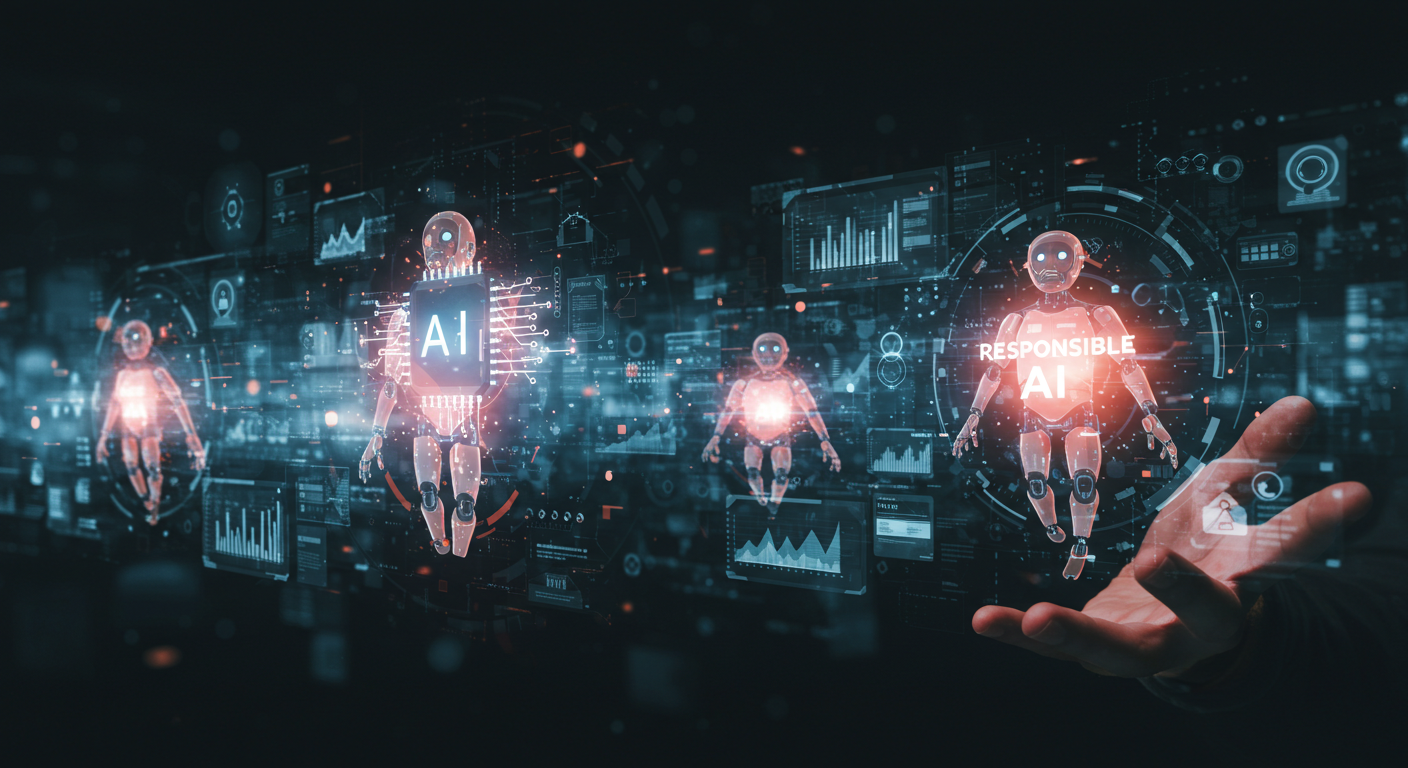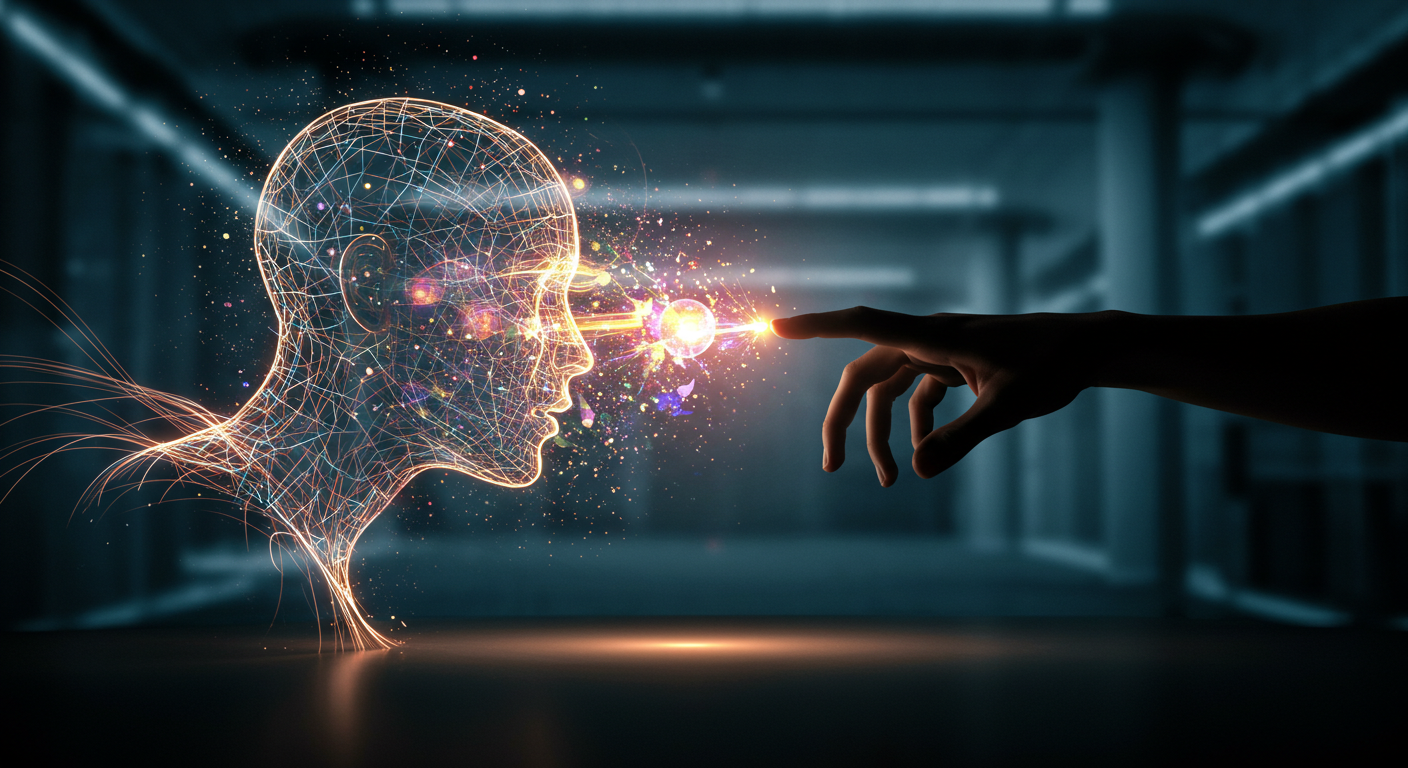
The Future of Creativity and AI: A Personal Reflection
The Future of Creativity and AI: A Personal Reflection
Lately, I’ve been spending a lot of time not just using AI tools, but also thinking deeply about what they mean for the future, especially in the realm of creativity. As someone who’s always been passionate about both technology and artistic expression, seeing these two worlds collide and merge at such an accelerated pace is nothing short of breathtaking – and at times, a little bit dizzying! This is a “journal” entry, so it’s more of a collection of my current thoughts, a snapshot of my perspective as I navigate this evolving landscape.
It feels like we’re standing on the cusp of a new era. The conversations I’m having, the experiments I’m running, and the sheer pace of innovation all point towards a profound shift in how we create, what we create, and even who gets to be a “creator.”
AI as the Ultimate Creative Co-Pilot
One of the first things that struck me, and a belief that has only deepened, is that AI, in its current and foreseeable form, is an incredible tool – a co-pilot, an assistant, an amplifier – rather than a replacement for human creativity. When I’m stuck for an idea for an image, I can brainstorm with an AI, rapidly visualizing concepts. When I’m drafting an article (like this one!), AI can help me outline thoughts or rephrase sentences. It doesn’t diminish my input; it augments it.
I’ve seen it act as a muse, offering unexpected visual combinations or lyrical phrases that spark entirely new directions in my own projects. It’s like having a brainstorming partner who has an encyclopedic knowledge of art history, literary styles, and musical theory, available 24/7. The key, I believe, is learning how to collaborate effectively with these tools, guiding them with our unique human intent and vision.
The Democratization of Creative Expression
This is perhaps one of the most exciting aspects for me. For so long, certain creative fields felt gated by the need for years of specialized training or expensive equipment. Want to be a visual artist? Better master drawing and painting. A musician? Learn an instrument and music theory.
AI tools are starting to lower these barriers. I have friends who never considered themselves “artistic” in the traditional sense who are now generating incredible images, crafting imaginative stories, or even composing simple melodies. This “democratization” doesn’t devalue expertise, but it does broaden the pool of who gets to express themselves creatively. It’s empowering, and I think it will lead to a richer, more diverse creative tapestry.
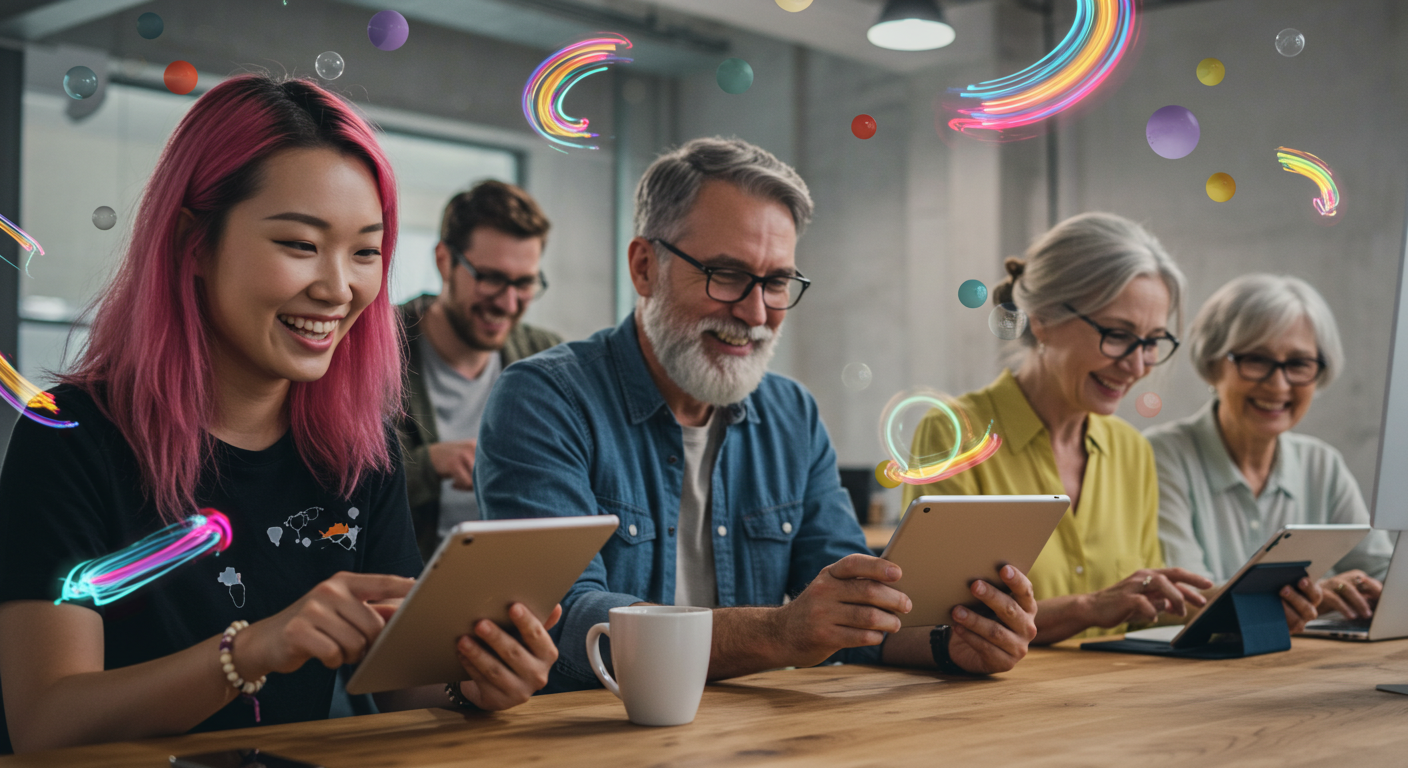 (Imagine a diverse group of people of different ages and backgrounds happily working on tablets and computers, with abstract creative elements floating around them, symbolizing AI-assisted creation.)
(Imagine a diverse group of people of different ages and backgrounds happily working on tablets and computers, with abstract creative elements floating around them, symbolizing AI-assisted creation.)
Uncharted Creative Territories
Beyond making existing creative forms more accessible, AI is also paving the way for entirely new modes of expression. Think about:
- Interactive Storytelling: AI could dynamically adapt narratives based on reader choices in ways far more complex than current choose-your-own-adventure formats.
- Generative Music: Real-time, adaptive soundtracks for games or even daily life, tailored to mood and environment.
- Hyper-Personalized Art: Art that is uniquely generated for an individual based on their personal data or preferences (with ethical considerations, of course).
- Accelerated Concepting: In fields like game design or architecture, AI can help visualize and iterate on concepts at an unprecedented speed, allowing for more ambitious ideas to be explored.
I feel like we’re just scratching the surface of what these new “AI-native” creative forms might look like.
Navigating the Challenges and Ethical Questions
Of course, it’s not all utopian. This rapid evolution brings with it significant challenges and valid concerns:
- Copyright and Ownership: Who owns AI-generated art? The user who wrote the prompt? The developers of the AI? The artists whose work was in the training data? These are complex legal and ethical questions we’re still grappling with.
- The Value of Human Skill: If anyone can generate a “masterpiece” in seconds, what does that mean for artists who have dedicated their lives to honing their craft? I believe human skill, intent, and the story behind the creation will always hold unique value, but the economic landscape will undoubtedly shift.
- Authenticity and Misinformation: The ease with which realistic (but fake) images and text can be generated raises concerns about deepfakes, misinformation, and the erosion of trust.
- Bias in AI: AI models are trained on data, and if that data contains biases, the AI will perpetuate and even amplify them. Ensuring fairness and inclusivity in AI development is critical.
These aren’t reasons to halt progress, in my opinion, but they are crucial considerations that require thoughtful discussion, regulation, and a responsible approach to development and deployment.
My Personal Blend of Excitement and Caution
As I explore this space for Domdhi.com, my dominant feeling is one of profound excitement. The potential to unlock new forms of creativity, to solve problems in innovative ways, and to empower more people to share their visions is immense. Every new tool I discover, every surprising output from a prompt, fuels my curiosity.
However, I also carry a healthy dose of caution. I believe it’s important to engage with these technologies critically, to understand their limitations and potential downsides, and to advocate for their ethical use. My journey is about embracing the possibilities while remaining mindful of the responsibilities that come with wielding such powerful tools.
The Adventure Continues: What Are Your Thoughts?
The future of creativity and AI isn’t a fixed destination; it’s a path we’re all co-creating right now through our experiments, our discussions, and our choices. For me, the journey is about continuous learning, adapting, and finding ways to integrate these tools meaningfully into my own creative workflows.
What are your hopes, fears, or excitements about the intersection of AI and creativity? How do you see it changing your field or your own creative pursuits? I’d genuinely love to hear your reflections in the comments below. This is a conversation we all need to be a part of.
